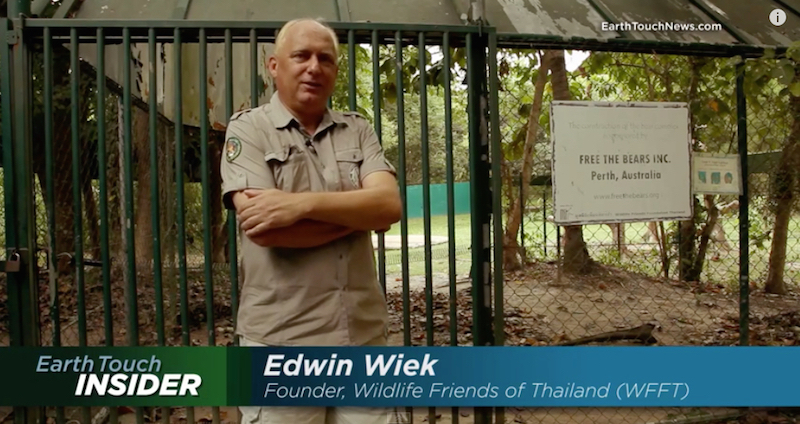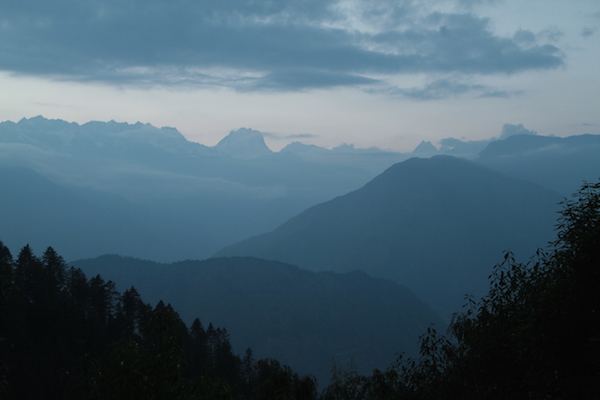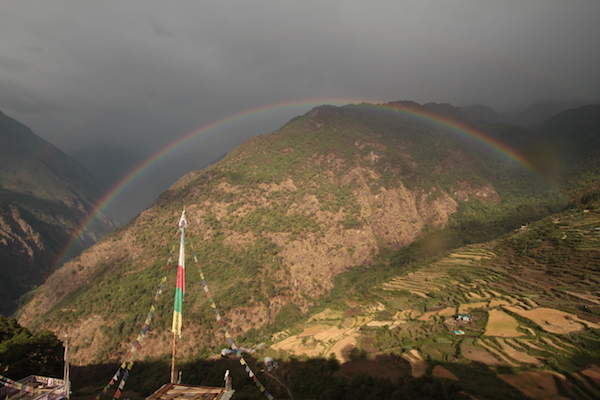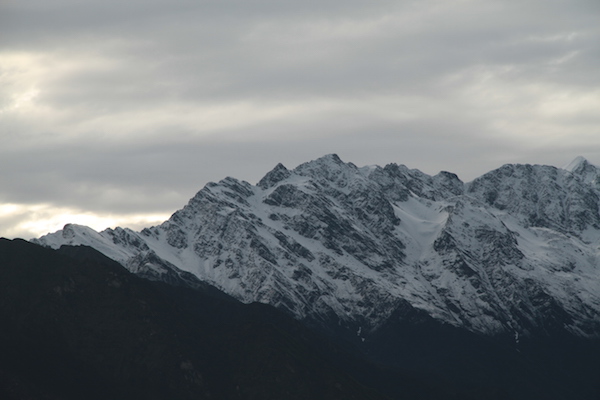Nepal
Here’s a look at some beautiful filming from Nepal last year…….
Here’s a look at some beautiful filming from Nepal last year…….
Plight of The Asian Bears. The Asiatic Black Bear and the Malayan Sun Bear are both victims of the pet trade and the disgusting bear bile industry. In part 1 of this series we look at two rescue centers working at saving these beautiful creatures. Filmed at the Wildlife Friends Foundation Thailand (WFFT) in Thailand and the Bornean Sun Bear Conservation Centre in Malaysia. Special thanks to Edwin Wiek of the WFFT. The WFFT runs a volunteer program and anyone wishing to be part of this great work and help out can contact WFFT directly.
Check out more Earth Touch Insider stories!

In December 2014 I travelled to the remote island of Hoga – part of the Wakatobi archipelago off the South East corner of Sulawesi. Essentially I was there collecting marine footage for Earth Touch. While there I met Melody Lynch who was living in a small Bajau community as part of her fellowship program. I spend many days filming the Bajau people in their beautiful stilt village of Sampela and also out fishing and sailing around the immediate area as they showed me their prowess in the water. Bajau are renowned free divers and I personally witnessed divers descending easily to 20 meters without the aid of fins or flippers.
Continue Reading →
In May 2014 I returned to Nepal with my dear friend Gustavo Martinez Schmidt of Nubla Productions to search for and ultimately film the elusive and highly endangered Red Panda. We hooked up with my old friend and guide Chimmi Lama from Tulo Shyphro – a beautiful village at the entrance to the Langtang National Park. He promised to take us to the areas of high cloud forest where we had the best chance to observe these shy creatures.

Before leaving Kathmandu we met ZSL project leader Hem Baral and interviewed him on behalf of Earth Touch. He pointed out that although conservation efforts were in place, the Red Panda was highly threatened and not enough was being done to ensure protection from future extinction. The main threat to the Red Panda is habitat loss through human encroachment.

The trip to Tulo Shyphro is a 2 day affair that starts with a 10 hour bus ride to the small village of Tulo Barkhu. From there it’s a 5 hour hike to Tulo Shyphro. We hung out in Tulo for a few days to acclimate and shoot b-roll then hiked another day up to Sing Gompa (3580 m.), which is the small lodge before the pass to Lake Gosaikund – a popular trekking route.
before the pass to Lake Gosaikund – a popular trekking route.
It’s from here that we set out every day in search of the Red Panda. Their habitat is the bamboo forests that are found in the cloud forests at 3 – 4000m overlooking the Langtang Valley. We spent a lot of time following fresh spoor and found plenty of evidence of recent Red panda activity but am sad to say were unable to capture any on film. Undeterred we plan to return to Nepal this year to try again – this time with a little more time………

For more information about Red Pandas check out this link from the WWF or try the Red Panda Network.
Earth Touch bring you news and stories from around the world about wildlife conservation, illegal wildlife trafficking and anything and everything related to the conservation and preservation of the world around us. Phuket Web Media provide regular content to Earth Touch’s web series – Wild Oceans, Little Adventures – Big Planet, and Insiders.
Recent filming projects include a trip to Wakatobi in South East Sulawesi to film the spectacular reefs there and meet the amazing Bajau people who have lived for generations at sea.
A story of the Gibbon trade here in Thailand and how the Gibbon Rehabilitation Centre here in Phuket is helping rescue gibbons from the streets where they are used as photo props or sold as pets.
The interesting though rather gruesome story of a dolphin necropsy performed at the Phuket Marine Biology Centre to determinate cause of death of a dolphin that was found washed up on one of Trang’s beaches in the South of Thailand.
Stewart Whitfield – co-founder of Phuket Web Media is Earth Touch’s S.E. Asia correspondent and provides underwater footage for Wild Oceans on a regular basis. Check out his profile at Earth Touch here.
Vanishing World of The Sea Gypsy – last November Phuket Web Media was commissioned by Icelandic production house Profilm along with NUBLA Producciones to capture the story of the Thai Andaman Sea Gypsies. We traveled up and down the Andaman coast meeting different Moken people (as they are known). We heard their stories, recorded their music and dance, went fishing and hunting with them, spoke to people who had been affected by their plight, learnt of their incredible skills both underwater and in the jungles of the Andaman Islands. We interviewed anthropologists, authors, reporters, national park rangers and Moken people. What we realised is theirs is a story worth telling. Primarily I was hired to do the underwater filming and this documentary is complimented wonderfully by some beautiful underwater scenes of the Moken doing what they do best – diving.
Today the culture of the Moken people is on the brink of being lost forever. They have been pushed out of their hunting grounds by commercial fishing vessels and national park rangers. Borders that do not exist in Moken have been imposed upon them making it difficult to sail their traditional hunting grounds (such as between Myanmar and Thailand) many staple foods are now listed as protected, and many of the reefs that were once their supermarkets are now protected from all fishing.
The Moken people first came to the attention of the world in the aftermath of the 2004 tsunami. Not one single Moken perished in the tsunami and indeed they were responsible for saving the many lives of people that would listen to their warnings. When the Tsunami arrived destroying everything in its path, the Moken had already grabbed their children and run to higher ground, along with anyone who would listen. Since then the Moken people of the Surin Islands have resettled on one of the small sandy bays within the Surin Islands National Park. Their children are being educated via a Thai curriculum and although that may seem a good thing, many of their ancient beliefs and culture are slowly being forgotten.
Vanishing World of The Sea Gypsy will be screened on Thai PBS this year.
We use cookies to improve performance, and create a better experience when using our website You can learn more about our cookie policy at Privacy Policy and can manage your own privacy settings here: Settings